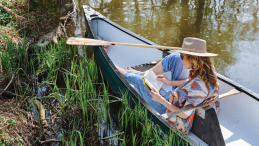In Myanmar, mangrove forests play a significant role in both coastal protection and the provision of livelihood possibilities for coastal populations. However, the mangrove areas were dramatically changed by human influences such as the expansion of aquaculture, agriculture, and charcoal production and environmental changes. The subsequent mangrove deterioration leads to biodiversity losses, coastal instability and reduced water quality.
The success or failure of rehabilitation of mangrove restoration relies on the specific ecosystem, in which the ecological, social and political factors are linked together. In finding solutions for mangrove restoration, the causes of mangrove deterioration should be firstly assessed. Moreover, the ways of the balanced mangrove rehabilitation action with livelihood requires investigating the actors and their power on the mangrove management. The co-consideration of environmental, socio-economic and political aspects is therefore essential for ensuring successful and sustainable mangrove rehabilitation. Therefore, the project aims to investigate the drivers of mangrove deforestation and its existing ecosystem services, to identify the actors who are involved in mangrove forest management systems, and to characterize their interest in its ecosystem services and their influence and power on the management decision. This project will use the actor-centered power approach (ACP) to create sustainable ecological, social, and economic outcomes that can enhance mangrove restoration efforts, thereby improving coastal protection, carbon sequestration, marine biodiversity, and local communities’ access to sustainable incomes from the sale of forest and/or non-timber products.
This project is funded by DAAD under the Development related the post-graduate course (DAAD-EPOS) program.





